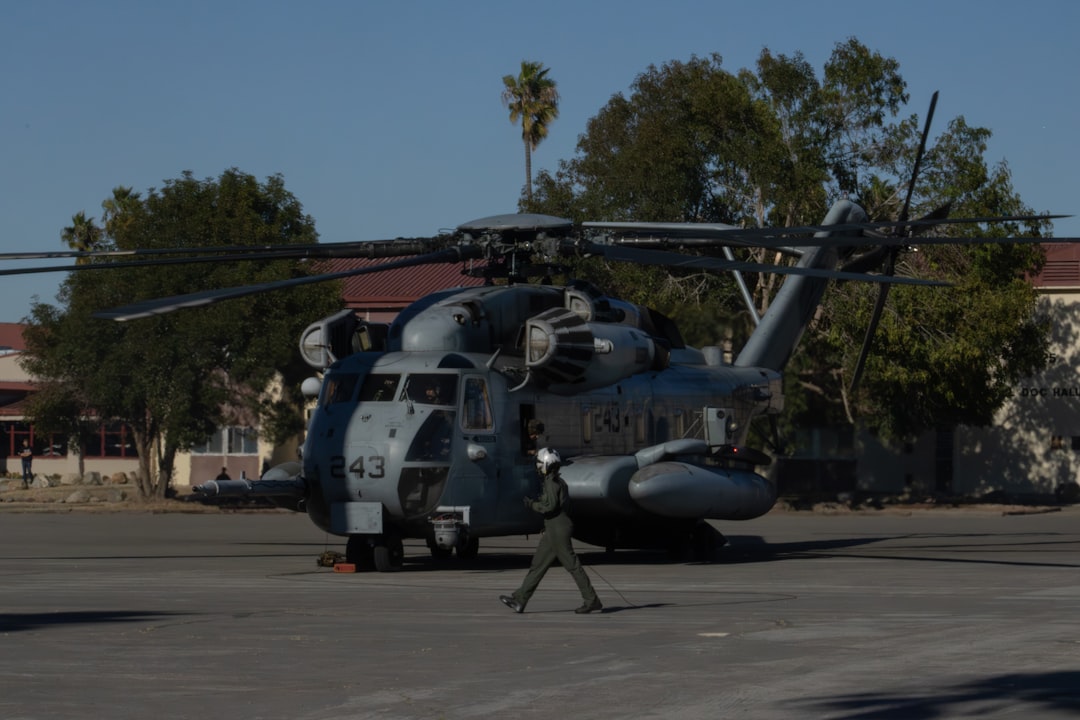Aerospace engineering is a specialized field of engineering that focuses on the design, development, testing, and production of aircraft, spacecraft, and related systems and equipment. This discipline encompasses two primary branches: aeronautical engineering, which deals with vehicles that operate within the Earth’s atmosphere, and astronautical engineering, which focuses on vehicles that operate outside of it. The field integrates various engineering principles, including mechanical, electrical, materials, and systems engineering, to create innovative solutions for complex challenges in air and space travel.
The history of aerospace engineering can be traced back to the early 20th century with the advent of powered flight. Pioneers like the Wright brothers laid the groundwork for modern aviation, while subsequent advancements during World War II accelerated the development of military aircraft. The post-war era saw a significant expansion into space exploration, culminating in landmark achievements such as the launch of Sputnik by the Soviet Union in 1957 and the Apollo moon landing in 1969.
Today, aerospace engineering continues to evolve rapidly, driven by advancements in technology, materials science, and computational methods, making it a dynamic and exciting field.
Key Takeaways
- Aerospace engineering focuses on the design, development, and testing of aircraft and spacecraft.
- Pursuing a degree in aerospace engineering opens doors to innovative and high-demand career paths.
- Selecting the right program involves considering accreditation, faculty expertise, and available resources.
- Students gain critical skills in aerodynamics, propulsion, materials science, and systems engineering.
- Internships and co-op programs provide practical experience and enhance job prospects after graduation.
Why Pursue an Aerospace Engineering Degree?
Pursuing a degree in aerospace engineering offers numerous advantages for students interested in a career at the forefront of technology and innovation. One of the most compelling reasons is the opportunity to work on groundbreaking projects that have a significant impact on society. From developing more efficient commercial airliners to designing spacecraft for interplanetary exploration, aerospace engineers play a crucial role in shaping the future of transportation and exploration.
This field not only allows individuals to contribute to technological advancements but also addresses pressing global challenges such as climate change through the development of sustainable aviation technologies. Moreover, aerospace engineering is a field characterized by its interdisciplinary nature. Students gain exposure to a wide range of subjects, including fluid dynamics, thermodynamics, structural analysis, and control systems.
This broad knowledge base equips graduates with versatile skills that are applicable in various industries beyond aerospace. For instance, the principles learned in aerospace engineering can be applied to automotive design, renewable energy systems, and even robotics. As a result, graduates often find themselves with diverse career options and the ability to adapt to changing job markets.
Choosing the Right Aerospace Engineering Program
Selecting the right aerospace engineering program is a critical step for aspiring engineers. Factors such as accreditation, faculty expertise, research opportunities, and industry connections should be carefully considered. Accreditation from recognized bodies like the Accreditation Board for Engineering and Technology (ABET) ensures that the program meets high educational standards and prepares students for professional practice.
Programs that are well-accredited often have strong ties to industry partners, providing students with valuable networking opportunities and potential job placements upon graduation. Another important aspect to consider is the availability of specialized tracks or concentrations within aerospace engineering programs. Some institutions offer focused areas of study such as propulsion systems, avionics, or space systems engineering.
These specializations allow students to tailor their education to align with their interests and career goals. Additionally, prospective students should explore research opportunities available at their chosen institution. Engaging in research projects not only enhances learning but also provides practical experience that can be advantageous when entering the job market.
Skills and Knowledge Gained from an Aerospace Engineering Degree
| Skill/Knowledge Area | Description | Typical Proficiency Level | Application in Aerospace Engineering |
|---|---|---|---|
| Fluid Mechanics | Understanding of fluid behavior and aerodynamics | Advanced | Design and analysis of aircraft and spacecraft aerodynamics |
| Structural Analysis | Knowledge of material strength and stress analysis | Advanced | Ensuring structural integrity of aerospace components |
| Propulsion Systems | Study of engines and thrust generation | Intermediate to Advanced | Design and optimization of jet engines and rocket motors |
| Control Systems | Understanding feedback and control theory | Intermediate | Flight control and stability management |
| Materials Science | Knowledge of aerospace materials and composites | Intermediate | Selection of materials for weight and durability optimization |
| Computer-Aided Design (CAD) | Proficiency in design software tools | Intermediate | Creating detailed aerospace component models |
| Thermodynamics | Understanding energy systems and heat transfer | Advanced | Analysis of propulsion and environmental control systems |
| Systems Engineering | Integration of complex aerospace systems | Intermediate | Managing multidisciplinary aerospace projects |
| Mathematics | Advanced calculus, differential equations, and linear algebra | Advanced | Modeling and simulation of aerospace phenomena |
| Research and Development | Ability to conduct experiments and analyze data | Intermediate | Innovating new aerospace technologies and solutions |
Aerospace engineering programs equip students with a robust set of skills and knowledge essential for success in the field. One of the core competencies developed is proficiency in advanced mathematics and physics. Students learn to apply mathematical concepts to solve complex problems related to flight dynamics, structural integrity, and fluid mechanics.
This analytical skill set is crucial for designing safe and efficient aerospace systems. In addition to technical skills, aerospace engineering education emphasizes teamwork and communication. Many projects require collaboration among diverse teams of engineers and specialists.
Students often participate in group projects that simulate real-world engineering challenges, fostering their ability to work effectively with others. Furthermore, strong communication skills are vital for presenting ideas clearly to both technical and non-technical audiences. This combination of technical expertise and interpersonal skills prepares graduates to thrive in collaborative environments typical of aerospace projects.
Internship and Co-op Opportunities in Aerospace Engineering
Internships and cooperative education (co-op) programs are invaluable components of an aerospace engineering education. These experiences provide students with hands-on exposure to the industry, allowing them to apply theoretical knowledge in practical settings. Many universities have established partnerships with leading aerospace companies such as Boeing, Lockheed Martin, and NASA, facilitating internship placements that can significantly enhance a student’s resume.
Participating in internships not only helps students develop technical skills but also allows them to gain insights into workplace dynamics and industry expectations. For instance, an intern at an aerospace company may work on real projects involving aircraft design or testing new materials for spacecraft. Such experiences can lead to networking opportunities that may result in job offers after graduation.
Additionally, co-op programs often extend over multiple semesters, providing students with extended work experience that can be particularly beneficial when entering a competitive job market.
Career Opportunities for Aerospace Engineering Graduates
Graduates with a degree in aerospace engineering have access to a wide array of career opportunities across various sectors. The most traditional path leads to roles within aerospace companies where engineers design and test aircraft or spacecraft. Positions may include roles such as design engineer, systems engineer, or propulsion engineer.
These professionals are responsible for ensuring that vehicles meet safety standards while optimizing performance and efficiency. Beyond traditional aerospace roles, graduates can also find opportunities in sectors such as defense, automotive, telecommunications, and even renewable energy. For example, many aerospace engineers work on developing unmanned aerial vehicles (UAVs) or drones for applications ranging from military surveillance to agricultural monitoring.
Additionally, some graduates may choose to enter academia or research institutions where they can contribute to advancing knowledge in areas like aerodynamics or materials science.
Advanced Degrees and Specializations in Aerospace Engineering
For those looking to deepen their expertise or focus on specific areas within aerospace engineering, pursuing an advanced degree can be highly beneficial. Master’s programs often allow students to specialize in fields such as aerodynamics, avionics systems, or space exploration technologies. These advanced studies provide opportunities for research that can lead to innovations in aerospace design or technology.
Furthermore, obtaining a Ph.D. in aerospace engineering opens doors to careers in research and academia. Doctoral candidates engage in extensive research projects that contribute significantly to the field’s body of knowledge.
They may explore cutting-edge topics such as hypersonic flight or advanced propulsion systems. Graduates with Ph.D.s often take on roles as university professors or researchers at national laboratories or private research institutions.
Tips for Launching a Successful Career in Aerospace Engineering
Launching a successful career in aerospace engineering requires strategic planning and proactive engagement with the industry. One essential tip is to seek out internships early in one’s academic journey. Gaining practical experience while still in school not only enhances technical skills but also helps build a professional network that can be invaluable when seeking full-time employment after graduation.
Additionally, staying informed about industry trends and advancements is crucial for aspiring aerospace engineers. Engaging with professional organizations such as the American Institute of Aeronautics and Astronautics (AIAA) can provide access to resources like conferences, workshops, and publications that keep members updated on the latest developments in the field. Networking at these events can lead to mentorship opportunities and potential job leads.
Moreover, developing soft skills such as problem-solving abilities and adaptability is equally important. The aerospace industry is constantly evolving due to technological advancements and changing regulations; therefore, engineers must be prepared to learn continuously throughout their careers. Embracing lifelong learning through additional certifications or training programs can further enhance career prospects and ensure relevance in this dynamic field.
In summary, aerospace engineering is a multifaceted discipline that offers exciting opportunities for those passionate about flight and space exploration. With a solid educational foundation, practical experience through internships, and a commitment to continuous learning, aspiring engineers can carve out successful careers that contribute significantly to technological advancements in aviation and beyond.




